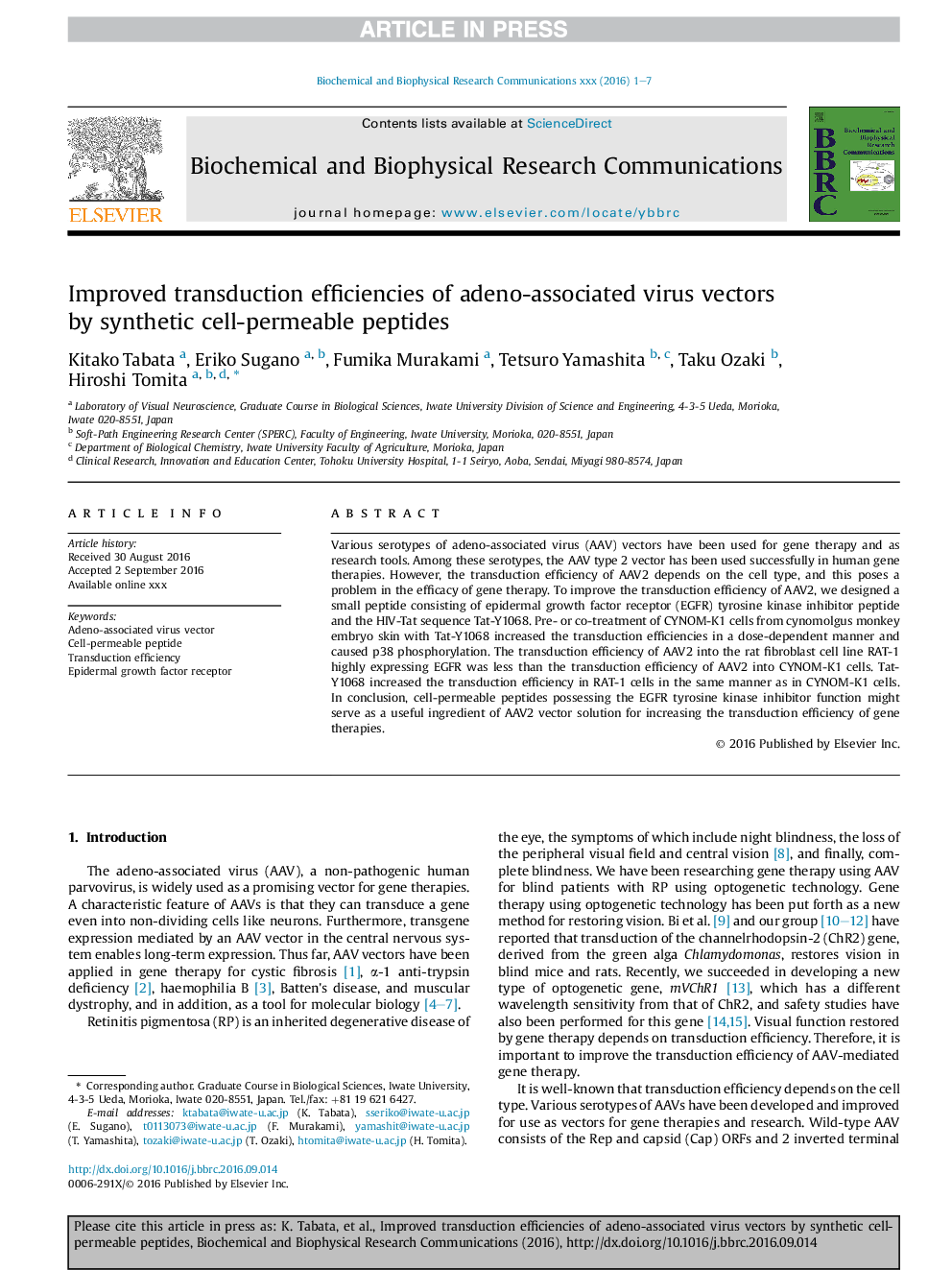| Article ID | Journal | Published Year | Pages | File Type |
|---|---|---|---|---|
| 5506649 | Biochemical and Biophysical Research Communications | 2016 | 7 Pages |
Abstract
Various serotypes of adeno-associated virus (AAV) vectors have been used for gene therapy and as research tools. Among these serotypes, the AAV type 2 vector has been used successfully in human gene therapies. However, the transduction efficiency of AAV2 depends on the cell type, and this poses a problem in the efficacy of gene therapy. To improve the transduction efficiency of AAV2, we designed a small peptide consisting of epidermal growth factor receptor (EGFR) tyrosine kinase inhibitor peptide and the HIV-Tat sequence Tat-Y1068. Pre- or co-treatment of CYNOM-K1 cells from cynomolgus monkey embryo skin with Tat-Y1068 increased the transduction efficiencies in a dose-dependent manner and caused p38 phosphorylation. The transduction efficiency of AAV2 into the rat fibroblast cell line RAT-1 highly expressing EGFR was less than the transduction efficiency of AAV2 into CYNOM-K1 cells. Tat-Y1068 increased the transduction efficiency in RAT-1Â cells in the same manner as in CYNOM-K1 cells. In conclusion, cell-permeable peptides possessing the EGFR tyrosine kinase inhibitor function might serve as a useful ingredient of AAV2 vector solution for increasing the transduction efficiency of gene therapies.
Keywords
Related Topics
Life Sciences
Biochemistry, Genetics and Molecular Biology
Biochemistry
Authors
Kitako Tabata, Eriko Sugano, Fumika Murakami, Tetsuro Yamashita, Taku Ozaki, Hiroshi Tomita,
